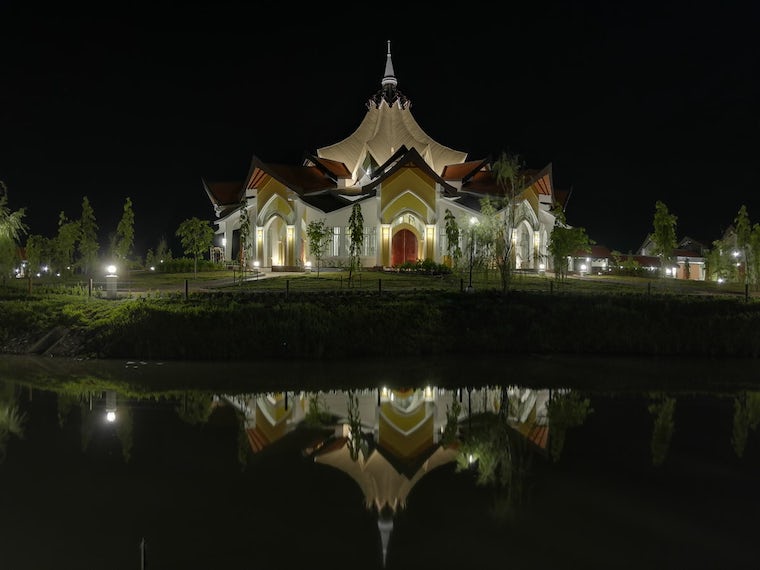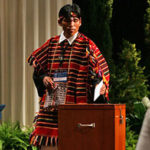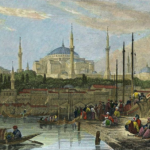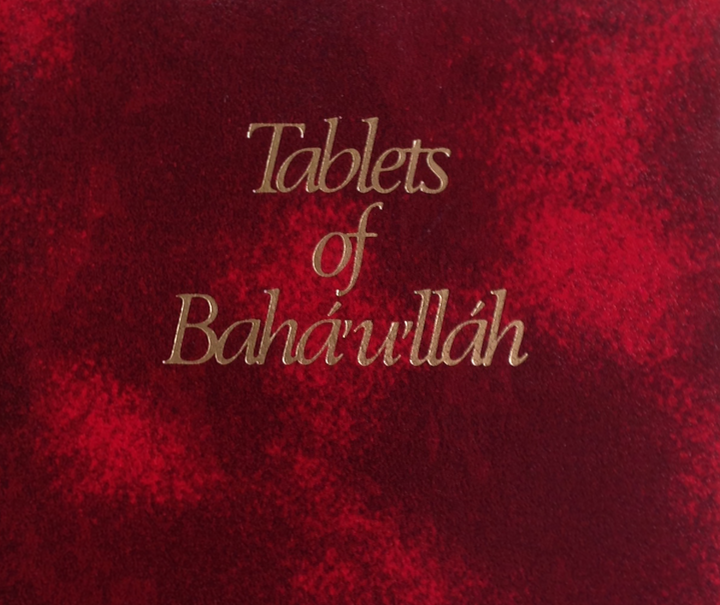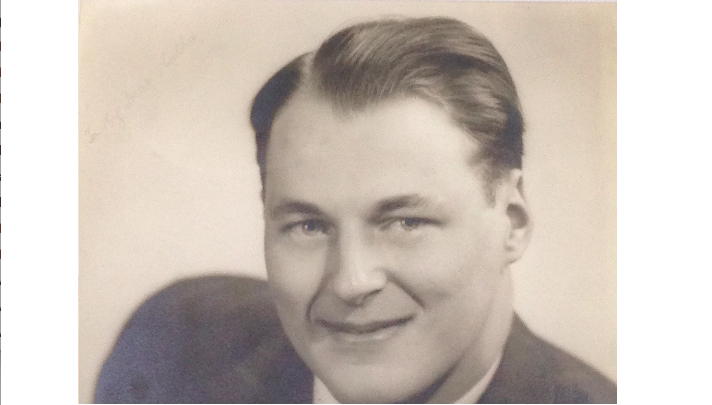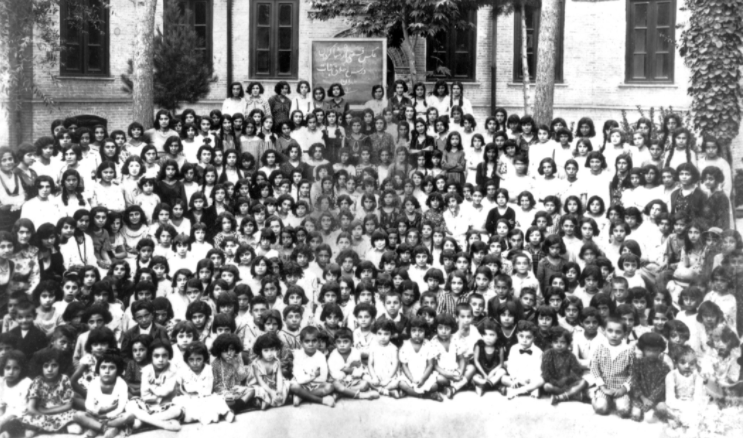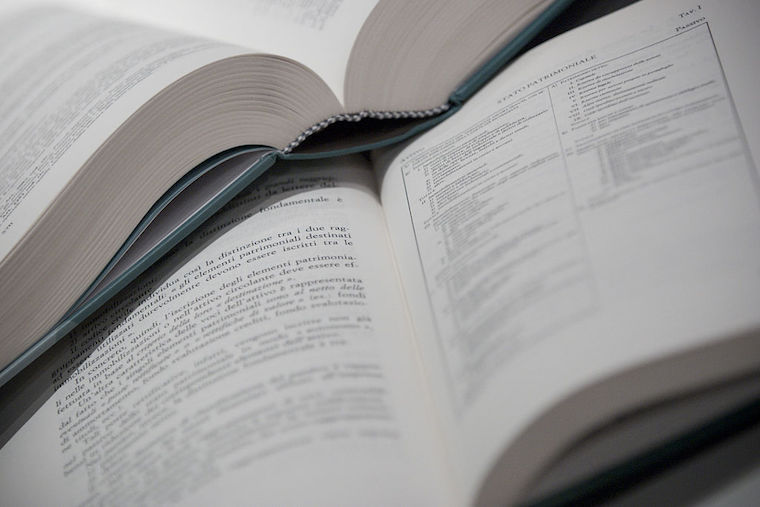
What is Law?
 Bahá’u’lláh’s purpose throughout his mission was to promote the oneness of humankind but, he notes, that “At one time We spoke in the language of the lawgiver; at another in that of the truth-seeker and the mystic.“[1] If “law” is interchangeable with “mystic truth” it begs the question: what is law?
Bahá’u’lláh’s purpose throughout his mission was to promote the oneness of humankind but, he notes, that “At one time We spoke in the language of the lawgiver; at another in that of the truth-seeker and the mystic.“[1] If “law” is interchangeable with “mystic truth” it begs the question: what is law?
It’s a question that has engaged legal philosophers for centuries – and prominent among their theories is that laws are “commands” – they are “rules” that we have to obey. But, it quickly gets complicated. As legal scholars ask – why can we say that the commands of the head of a criminal gang are not “law” but the commands of our country are? We can agree that there is a difference and that we will recognise one but not the other as “law” – but if we are really honest – we will have to admit that it isn’t an entirely logical distinction. Indeed other legal scholars take a “critical” view and think of law as another form of politics – the arbitrary imposition of the will of one group within society on another (for example men over women, one race against another, or one class against another). We play word games to “reify” law – to make it seem as if it is a real object that cannot be questioned. There is some truth to what they say. Both such views are grounded in observations of human behaviour and seek to infer the characteristics of law from those observations.
Another approach to law doesn’t start from what people do — it rather thinks about what to people “should” do. It thinks of law in the same way we might think of mathematics — as “natural” principles that arise from the very nature of the world – in the same way that 1+1 must always equal 2. This idea about law is called “natural law”. Such law is universal, unchanging and eternal and we can work out what it is by application of our human reason.
Human rights law is – in some understandings – developed in this way. Human rights are inherent in human nature and therefore no human law giver can ever take them away. It’s obvious that if you don’t have this principle any oppressive regime can simply get rid of human rights by making a “law” against it. Generally speaking, we don’t recognise such laws. Therefore those who following “commands” from a state authority and commit atrocities can still be found guilty of crimes – to have acted “against the law”.
Another version of “natural law” is “divine law”. Again law is typically thought of as universal, eternal, unchanging and that law comes from the will of God. (Notably, in the Baha’i teachings even divine laws changes according to the needs of the time as a consequence of the evolution of humanity over time). However, as will be evident from human history, people have never agreed what divine law is, and that it has been used in oppressive ways in different societies at different times. However, these observations don’t do “divine law”, justice, for it has undoubtedly also been the source of inner strength of human beings who have stood for what they knew to be right when their societies practised great evil most thought to be normal: we may think of figures such as the Reverend Dr Martin Luther King, who was motivated by a deep faith in Christian principles such as brotherhood and equality.
In Bahá’u’lláh’s writings we may reflect on the implications of the following words of the Long Obligatory Prayer in this context:
Greater is God than every great one![2]
While the ways of thinking about law outlined above are different to each other – they all have something in common that makes them quite similar. They all think of law as a set of rules. While it may again seem obvious that laws are a kind of rule – again things are complicated. We may take the statement of John Locke, an 18th-century political philosopher:
… the [purpose] of law is not to abolish or restrain, but to preserve and enlarge freedom: for in all the states of created beings capable of laws, where there is no law, there is no freedom: for liberty is, to be free from restraint and violence from others; which cannot be, where there is no law …[Concerning Civil Government, Second Essay, Chapter VI]
It is an important thought. Although law controls – that is not its purpose – and law and freedom are intertwined. We may need to look below a law’s outer form to understand its true nature. We find the same concept in Bahá’u’lláh’s writings.
Were men to observe that which We have sent down unto them from the Heaven of Revelation, they would, of a certainty, attain unto perfect liberty. Happy is the man that hath apprehended the Purpose of God in whatever He hath revealed from the Heaven of His Will … [3]
Particularly in his book of laws, the Kitab-i-Aqdas, Bahá’u’lláh writes as a “law-giver” but his words suggest that he does not want us to think of his “laws” as “rules” – and he asks us to meditate on the following statement.
Think not that We have revealed unto you a mere code of laws. Nay, rather, We have unsealed the choice Wine with the fingers of might and power. To this beareth witness that which the Pen of Revelation hath revealed. Meditate upon this, O men of insight![4]
The reference to “choice Wine” alludes to the prophecies of Bahá’u’lláh’s mission. Thus in the Qur’an, when speaking of the “day of judgement”, there is a reference to an “inscribed” or “written” book which is a “pure” “sealed” wine.
And what will make you know what the highest places are? A written book. Those drawn near witness it. Surely the righteous are in bliss, On raised couches, gazing — You will recognise in their faces the brightness of bliss. They are given to drink of a pure sealed wine. Its seal is musk. And for that let the seekers seek.[Quran 83: 19-27, adapted from two English translations: 1. Maulana Muhammad Ali and 2. A.J. Droge]
The reference to “choice wine” also reminds us of Bahá’u’lláh’s statement above, that he speaks “different languages” at different times – but the message is the same.
This suggests that there an inner reality of which the words are the “outer form”. Whether we read a law such as “God hath, likewise, as a bounty from His presence, abolished the concept of “uncleanness,” whereby divers things and peoples have been held to be impure.“[5] or read a mystic passage such as “Love Me, that I may love thee. If thou lovest Me not, My love can in no wise reach thee.”[6], the underlying theme is the same.
Our understanding of law is further challenged by realising that unlike our typical understanding of law – Bahá’u’lláh’s laws are not primarily imposed by any external authority. Rather, their application arises from a person’s recognition of Bahá’u’lláh and from their heart’s desire to live in accordance with the teaching and vision Bahá’u’lláh brings.
From My laws the sweet-smelling savor of My garment can be smelled, and by their aid the standards of Victory will be planted upon the highest peaks. The Tongue of My power hath, from the heaven of My omnipotent glory, addressed to My creation these words: “Observe My commandments, for the love of My beauty.” Happy is the lover that hath inhaled the divine fragrance of his Best-Beloved from these words, laden with the perfume of a grace which no tongue can describe.[7]
This is not law as we understand it. It is a life lived full of innumerable expressions of love for the beloved.
It is a life lived full of innumerable expressions of love for the beloved.
Image Credits: Italian law texts, By Thomaseagle (Own work) [GFDL (http://www.gnu.org/copyleft/fdl.html) or CC BY-SA 4.0-3.0-2.5-2.0-1.0 (http://creativecommons.org/licenses/by-sa/4.0-3.0-2.5-2.0-1.0)], via Wikimedia Commons
(This article is the 147th in a series of what I hope will be 200 articles in 200 days for the 200th anniversary of the birth of Bahá’u’lláh. The anniversary is being celebrated around the world on 21 and 22 October 2017, The articles are simply my personal reflections on Bahá’u’lláh’s life and work. Any errors or inadequacies in these articles are solely my responsibility.)

